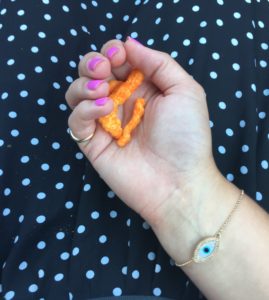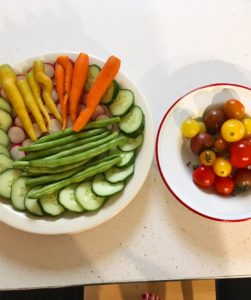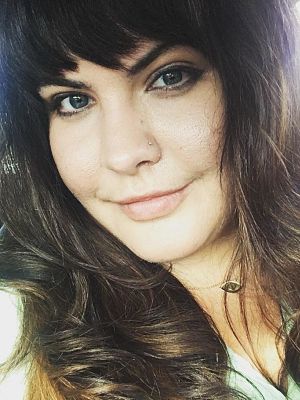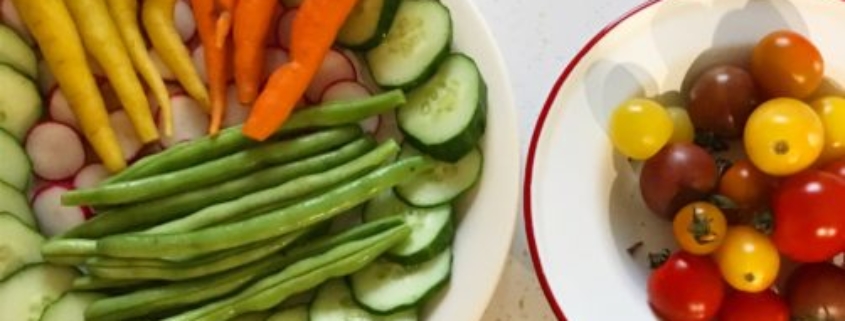Food Justice: A Menu
Breakfast Club

A farm-fresh egg.
I had a story published recently about the first time my husband fried me over-medium, farm-fresh eggs for breakfast. They were velvety, oozing, and accompanied by buttered sourdough toast.
The eggs were a revelation to my palate. I ate a lot of canned, frozen, boxed, bagged, fake, cheap, and subsidized food growing up. Those items were what we could afford on a single mother’s income in Milwaukee. My breakfast frequently consisted of white toast or frozen waffles with imitation maple syrup.
I used to be ashamed that I was poor. Once, a school friend who lived in Brookfield, an affluent Milwaukee suburb, was supposed to pick me up for a weekend field trip. She called from her cell phone, an unheard of luxury for a 15-year-old at that time, saying she couldn’t find my house. I didn’t hear the sound of any cars on the other line, no blurred rushing of semi-trucks on the overpass. Later, I learned her parents had not wanted her to drive to my neighborhood. My step-dad drove me instead, and I ate a toaster pastry from its foil wrapper on the way.
Beer Break/Cigarette Chaser
My mom got pregnant when she was 19, working and partying in Boulder, Colorado. She moved home to give birth to me in Milwaukee, working a full-time job with a second part-time job on the weekends to support us. The south side of Milwaukee was and is predominantly Catholic; my mom turning up pregnant with no husband was frowned upon. I lived with her in the attic of a house on 32nd and Oklahoma until I was six years old. My two aunts and grandparents also lived in that little house, and we ate gigantic amounts of French toast together on weekend mornings.
Both of my maternal grandparents were heavy smokers. To this day, the smell of Pall Malls reminds me of my grandma’s limpid turquoise eyes and puckered mouth—sometimes angry, sometimes just smoking. The smell of Camels shrinks me to age 4, being tossed in the air and kissed on the cheek by my Grandpa, his rough, scruffy cheeks emanating nicotine and motor oil. My grandmother died at the age of 46 from lung cancer. Then, we moved out of the house on 32nd Street and tried to make it on our own. Less than four years later, my grandpa died at the age of 52 from esophageal cancer. We were left in a precarious financial situation, and my mother lost both her parents before she was 30.
It was not easy.
My mom, working full time in healthcare and catering gigs on the weekends, also returned to college when I was six. She finished her undergraduate degree in four years—a veritable superhero. But her course load and work schedule meant I was a latchkey kid and had a lot of teenaged babysitters on weekends. I remember taking malty sips of Miller High Life when I was little with some of those babysitters, unbeknownst to my mother. Those fizzy drams gave me a taste of Milwaukee and the grainy flavor of a beer I still eschew.
No Free Lunch
After the house on 32nd Street, we lived in the upper unit of a duplex within walking distance of my tiny Catholic elementary school. Here, my mother diligently fed us healthy, high-protein, low-calorie meals that didn’t cost much. Lemon pepper chicken, low-sodium canned soup, frozen broccoli, eaten at our battered, tiny oak kitchen table. So many, many supermarket-special chicken breasts. By the time I was 11, I couldn’t eat another bite of lemon-pepper chicken. This may be because I associate the dish with my mother’s ear-splitting screams, which she emitted every time a cockroach skittered across the kitchen sink backsplash in that rental place, an apartment my mom and I kept spotless—the downstairs landlord refused to have it treated for the pests. It was our first-ever time living on our own. My mother’s trauma and my own fear of those sprinting bugs, and the stigmatized poverty they represented, stuck with me. When I was in my early 20s and it came time to decide whether I wanted to pursue my magazine editorial dreams, I shrank from moving to Manhattan, or any denser urban area than my college town, Madison. Too many roaches.
Since I went to private school, I did not receive free lunch through a public school program. Instead, I ate the simple bag lunches my mother packed: turkey sandwiches, applesauce, celery with peanut butter and raisins, and the occasional baggie of Cheetos. I grew up in the Dairy State, full of world-class creameries and award-winning cheese, but for me, manufactured cheese powder tastes like home.

Cheetos were like a surprise dessert in my lunches.
After-School Snacks
Before the lessons got too expensive and I grew bored of the classes, I took gymnastics. This extra energy expenditure required that I eat a healthy, hearty snack every day. I slurped down Campbell’s Tomato Garden every weekday afternoon for three years—a soup I can no longer eat after this overconsumption. In 2009, I entered the workforce as the economy struggled to rebound. One of the few full-time “jobs” available was helping to run an elementary after-school program as an AmeriCorps volunteer in Madison. All of the students in the after-school program qualified for free lunch. Most came from single-parent households.
One day, a substitute offered to put together the daily snack for the children. She came back into the classroom from the community center kitchen brandishing a two-liter bottle of Pepsi and a gigantic bag of potato chips. The boys cheered. I remembered my mom’s commitment to making sure I ate somewhat-healthy soup rather than junk before gymnastics.
“Hell no!” I said, my outcry more inappropriate than the snack.
The kids stared wide-eyed at me.
“Ooooh!” they shouted. “Ms. Erica swore.”
I took the substitute aside and explained that the students should have grapes with string cheese for snack. Too late—the ten-year-old boys seized the Pepsi bottle and helped themselves, their Styrofoam cups sloshing over. The chips won that day.
Ruined Appetite
I struggled—and still do—with my weight, having been a skinny child and an athlete in high school and a curvy adult woman now. I didn’t fill out till college, with its requisite beer and pizza diet. When I recently read Harmony Cox’s essay on Narratively, “My Life As A Public Health Crisis,” her words hit home. Cox, who works as a food access advocate in Columbus, Ohio, describes herself as an overweight person, one who eats healthily and works out, but who didn’t have access to lots of produce growing up. She recounts a conversation with a colleague who stated that everyone in the neighborhood was fat, and that all the kids ate fast food.
“It’s like nobody loves them,” the colleague said.

Sugary breakfast cereals and other foods are frowned upon by food justice advocates.
Cox defended her neighborhood and her family and friends’ difficulties accessing healthy food in the past. She articulated in the essay that what angers her is that she and her poverty-line family and friends “didn’t have anything to be ashamed of. We weren’t the ones who made fresh food a luxury and junk food an easily obtained comfort.”
“Conversations about food access are so often tinged with judgment about personal responsibility and time management, as if every poor fat person is spending their time napping and eating Twinkies when they could be preparing quinoa from scratch,” Cox writes.
I felt, and sometimes still feel, immense shame and guilt when I eat junk food, like I’m submitting to my basest, most poverty-stricken urges. But after reading Cox’s essay and reflecting on my failed snack discipline in the AmeriCorps after-school program, I realized that, despite not knowing my biological dad or my full genetic identity, growing up with a single mom in Milwaukee, amidst the struggles and happiness, the bounced checks and the boxed macaroni and cheese, is my identity. The fake-frosting taste of Zebra Cakes and the salty tang of Spaghettios make up my background as much as the heaps of organic greens I eat now.
Supper Time
My monthly AmeriCorps stipends were so pitiful that my friend secured us a gig selling artisanal bratwursts at the Dane County Farmers’ Market. My AmeriCorps budget left little room for dining out and the work hours allowed scant time for cooking my own meals, so I subsisted on free brats, grab-and-go sandwiches and the snacks the kids ate each day. The bratwurst gig was my entrée into Madison’s foodie scene. It opened my eyes to food movements—organic, local, Slow—I knew existed but never thought I would eat. Too expensive.
I started dating the man I would later marry. He admitted sheepishly that he would probably become an organic mushroom farmer—he was born into the business. I was intrigued but not convinced. I’d never eaten mushrooms that were not on pizza. I liked all vegetables by that point, and I tried eating raw mushrooms like I would eat chips. I could see the appeal. This apparently impressed him, as did my enthusiasm for sticking my bare hand into a pile of steaming compost at his family farm. We moved in together.
That winter, we went to Costa Rica for a tropical horticulture class, where I learned more about the worldwide power of produce—papayas and coffee, bananas and Highland onions. The first salaried job offer I received after my AmeriCorps experience was as a food rights reporter, specifically to emphasize the wholesome benefits of raw milk and expose the insidious effects of sewage sludge. The organization’s efforts didn’t last, but my belief in food access did.
Even Milwaukee, my complicated and beloved hometown, which is notorious for its housing discrimination and the resulting racial segregation, as depicted in Matt Desmond’s Evicted, has worked to bridge its food access gap. Natural foods grocery stores are the norm for each sector of the city now, rather than a unique, far-flung destination smelling of couscous and nutritional yeast. Now, the Milwaukee restaurant industry burgeons with farm-to-table options.
Too Full for Dessert
I am white and have been the recipient of plenty of privilege—private primary and secondary educations, albeit subsidized with grants, scholarships, and work-study requirements; a college degree from a flagship state university; and upper-middle-class friends who include me in their activities and look out for me when I have trouble paying for fancy dinners.
I don’t know what it’s like to be evicted from an apartment for inability to pay rent, like Desmond’s Evicted subjects.
But I do know what it’s like to watch flames leap across the hood of my mother’s perpetually overheating station wagon, eviscerating the engine—a guarantee we would stick close to home that summer. A guarantee that our closest spot to buy an affordable meal was the frozen custard stand down the block.

I try to eat mostly plant-based now.
I remember my mother sighing heavily over her checkbook in the dingy fluorescent light at the nearest Pick n’ Save. Let’s hope to hell that check clears. My year in AmeriCorps, the card machine at the food co-op where I’d become a member declined my debit card. My face was so hot I could feel beads of sweat start to run down my cheeks, a precursor for tears. I put a few boxed organic items back, leaving only fresh produce to pay for, to save my checking account, which was fed up with being overdrawn.
As an author, I’m trying to write an authentic experience. One that includes the tough times—canned food and worn-out shoes—but also includes the brighter times—eating for the first time at a Michelin star restaurant because I worked there and got a huge discount, and choosing organic over conventional for most produce. As Cox wrote, food justice is about “growing appetites for the food that keeps people happy and healthy…It’s the long game, not the quick fix.”
Over the days I’ve drafted this essay, I’ve eaten healthfully—brown rice and black beans with fresh greens, sparkling water—and indulgently—a hot dog, Miller Lite. But both those meals make up me.
I feel free. I am full.
 E.P. Floyd is lead editor of flash prose, an interviewer, a blogger, and an assistant blog editor for Lunch Ticket, and an MFA candidate in fiction at Antioch University Los Angeles. Her writing is published or forthcoming in Lunch Ticket, Litbreak Magazine, Reservoir, and BusinessWeek. She is at work on a novel and short story collection, and lives in rural Wisconsin. Find her online at epfloyd.com.
E.P. Floyd is lead editor of flash prose, an interviewer, a blogger, and an assistant blog editor for Lunch Ticket, and an MFA candidate in fiction at Antioch University Los Angeles. Her writing is published or forthcoming in Lunch Ticket, Litbreak Magazine, Reservoir, and BusinessWeek. She is at work on a novel and short story collection, and lives in rural Wisconsin. Find her online at epfloyd.com.




